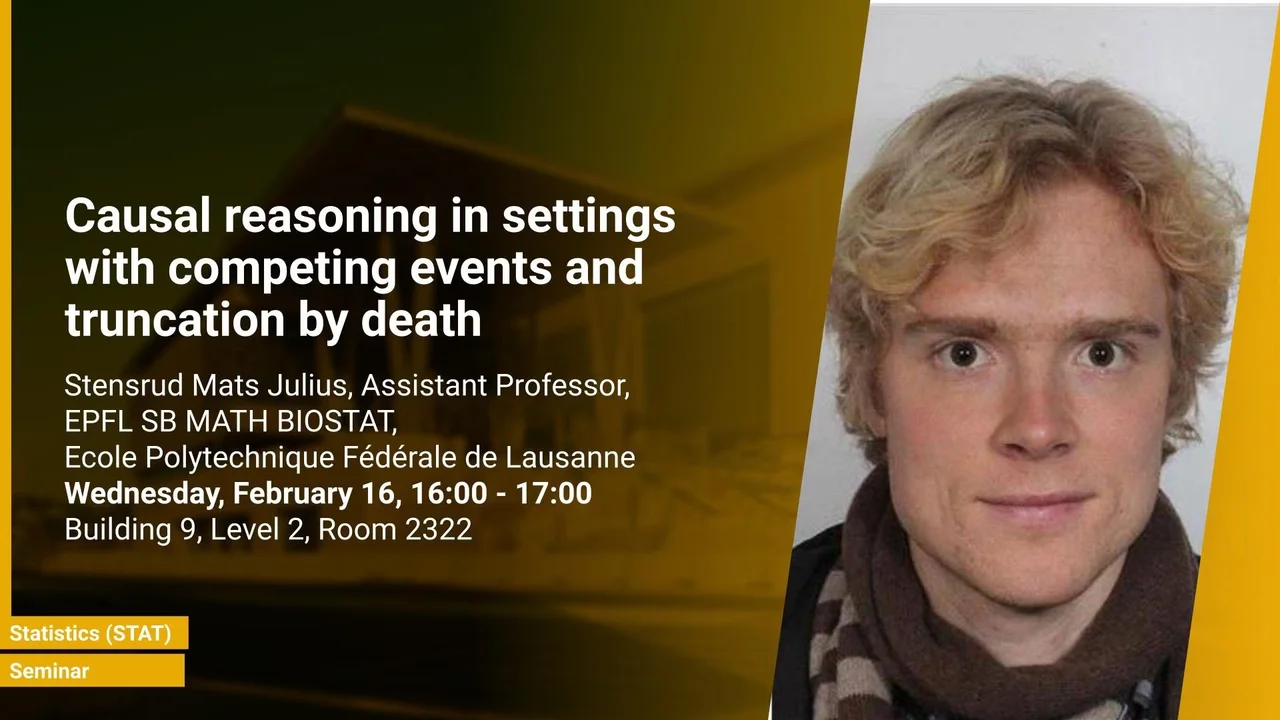
Causal reasoning in settings with competing events and truncation by death
B9 L2 R2322
A competing event is any event that makes it impossible for the outcome of interest to occur. The presence of competing events requires us to be careful about the interpretation of classical causal estimands. In particular, the average treatment effect captures effects through the competing event, pathways that may not be of primary interest. As a solution, we suggest the separable effect, inspired by Robins and Richardson’s extended graphical approach. We will give criteria that allow different interpretations of the separable effects and present identification conditions that can be evaluated in causal graphs.
Overview
Abstract
A competing event is any event that makes it impossible for the outcome of interest to occur. The presence of competing events requires us to be careful about the interpretation of classical causal estimands. In particular, the average treatment effect captures effects through the competing event, pathways that may not be of primary interest. As a solution, we suggest the separable effect, inspired by Robins and Richardson’s extended graphical approach. We will give criteria that allow different interpretations of the separable effects and present identification conditions that can be evaluated in causal graphs. Furthermore, we extend the definition of separable effects to settings where investigators are interested in treatment effects conditional on a post-treatment variable. These conditional separable effects are compelling alternatives to existing estimands, such as principal stratum effects: in particular, the conditional separable effects are defined in an identifiable subgroup of the population, and can be identified under assumptions that are empirically verifiable in a future randomized trial (thus, we avoid cross-world assumptions that are untestable in principle). To illustrate the new estimands, we analyze data from three randomized clinical trials.
Brief Biography
Mats J. Stensrud, MD Dr philos, is a tenure-track assistant professor of statistics in the Department of Mathematics, EPFL. His research focuses on methods for causal inference, usually in settings with exposures and outcomes that depend on time. Before coming to EPFL, Dr. Stensrud was a Kolokotrones research fellow and Fulbright Research Scholar at Harvard School of Public Health.